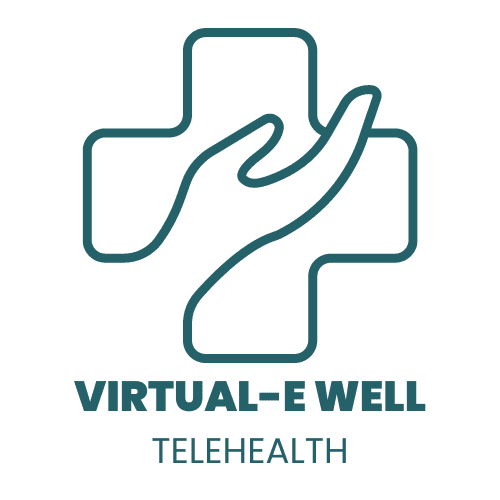
Everything About Mycotoxin Illness

Posted on November 4th, 2023
Mycotoxin illness, also known as mold toxicity, is a condition caused by exposure to toxic substances produced by certain types of mold. While mold is a common household problem, many people are unaware of the potential health risks of mold exposure and mycotoxin contamination. In this comprehensive guide, we'll delve into everything you need to know about mycotoxin illness, from its causes and symptoms to diagnosis, treatment options, and prevention strategies.
The Basics of Mycotoxin Illness
Mycotoxins are toxic compounds produced by various species of mold, including Stachybotrys chartarum (black mold), Aspergillus, Penicillium, and Fusarium. These toxins can contaminate indoor environments through water damage, dampness, and poor ventilation, leading to mold growth and mycotoxin production. Common sources of indoor mold include leaking pipes, roof leaks, flooded basements, and high humidity levels. When individuals inhale or come into contact with mycotoxin-contaminated air, food, or surfaces, they may experience a range of symptoms and health problems, collectively known as mycotoxin illness.
Signs and Symptoms of Mycotoxin Illness
Mycotoxin illness can manifest with a variety of symptoms, which can vary depending on factors such as the type of mold, the level of exposure, and individual susceptibility. Common symptoms of mycotoxin illness may include respiratory issues such as coughing, wheezing, and shortness of breath, as well as sinus congestion, throat irritation, and nasal congestion. Additionally, individuals may experience neurological symptoms such as headaches, dizziness, brain fog, memory problems, and mood changes. Other symptoms may include fatigue, weakness, joint pain, muscle aches, gastrointestinal issues, and skin rashes. It's essential to recognize the signs and symptoms of mycotoxin illness and seek medical evaluation if exposure is suspected.
Causes of Mycotoxin Illness
Mycotoxin illness can occur when individuals are exposed to high levels of mold and mycotoxins in their environment. Mold growth and mycotoxin production can be triggered by conditions such as water damage, flooding, leaks, and high humidity levels. Common sources of indoor mold include damp basements, bathrooms, kitchens, and areas with poor ventilation. Individuals with compromised immune systems, allergies, asthma, or respiratory conditions may be more susceptible to mycotoxin illness. Additionally, prolonged exposure to mold and mycotoxins in the workplace or home can increase the risk of developing symptoms and health problems associated with mycotoxin exposure.
In the complex web of health challenges posed by Lyme and other tickborne diseases, an often-overlooked factor is their significant connection with mold exposure. Mycotoxins, toxic compounds produced by mold, can exacerbate the symptoms of Lyme disease, triggering flare-ups and intensifying discomfort. Conversely, Lyme disease can impair the body's ability to effectively detoxify from mold exposure, creating a vicious cycle where each condition worsens the other. Recognizing and addressing this crucial link is key to developing a holistic treatment strategy, ensuring that interventions for Lyme also consider the impact of mold and mycotoxins on the patient's health.
Treatment Options for Mycotoxin Illness
The treatment of mycotoxin illness typically involves a multifaceted approach aimed at addressing symptoms, reducing exposure to mold and mycotoxins, and supporting detoxification and immune function. Treatment may include:
- Avoiding or removing sources of mold and mycotoxin contamination from indoor environments through thorough cleaning, remediation, and maintenance.
- Using air purifiers, dehumidifiers, and ventilation systems to improve indoor air quality and reduce mold spores and mycotoxins.
- Implementing dietary and lifestyle changes to support detoxification and immune function, such as eating a nutrient-dense diet, staying hydrated, and managing stress,.
- Taking supplements and medications to address specific symptoms and support overall health and well-being.
- Working with a healthcare provider experienced in treating mycotoxin illness to develop an individualized treatment plan tailored to your specific needs and circumstances.
Prevention Strategies for Mycotoxin Illness
Preventing mycotoxin illness involves taking proactive measures to reduce exposure to mold and mycotoxins in indoor environments. Some strategies for prevention include the following:
- Addressing water leaks, flooding, and moisture issues promptly is necessary to prevent mold growth and mycotoxin production.
- Keeping indoor spaces clean, dry, and well-ventilated helps minimize conditions conducive to mold growth.
- Using mold-resistant building materials and finishes in construction and renovation projects.
- Regularly inspecting and maintaining HVAC systems, roofs, plumbing, and other areas prone to water damage and mold growth.
- Monitoring indoor humidity levels and using dehumidifiers as needed to maintain humidity levels below 50%.
- Conducting routine inspections and testing for mold and mycotoxins in indoor environments, especially in areas with a history of water damage or moisture problems.
Conclusion
In conclusion, mycotoxin illness is a significant health concern associated with exposure to mold and mycotoxins in indoor environments. From its causes and symptoms to diagnosis, treatment options, and prevention strategies, understanding mycotoxin illness is essential for protecting your health and well-being. If you suspect you may be experiencing symptoms of mycotoxin illness or have concerns about mold exposure in your environment, don't hesitate to reach out to a healthcare provider for evaluation and guidance.
For expert guidance and personalized care for mycotoxin illness and related health concerns, contact Virtual-E Well today. Our experienced team is here to support you on your journey to recovery and wellness.
Email us at info @virtualewell.com or schedule a consulta tion and take the first step!
Get in Touch for Personalized Guidance
Have questions, need assistance choosing the right consultation, or simply want to reach out? Fill out the form below, and we will be happy to assist you.
Give us a call
(239) 420-6694Send us an email
[email protected]